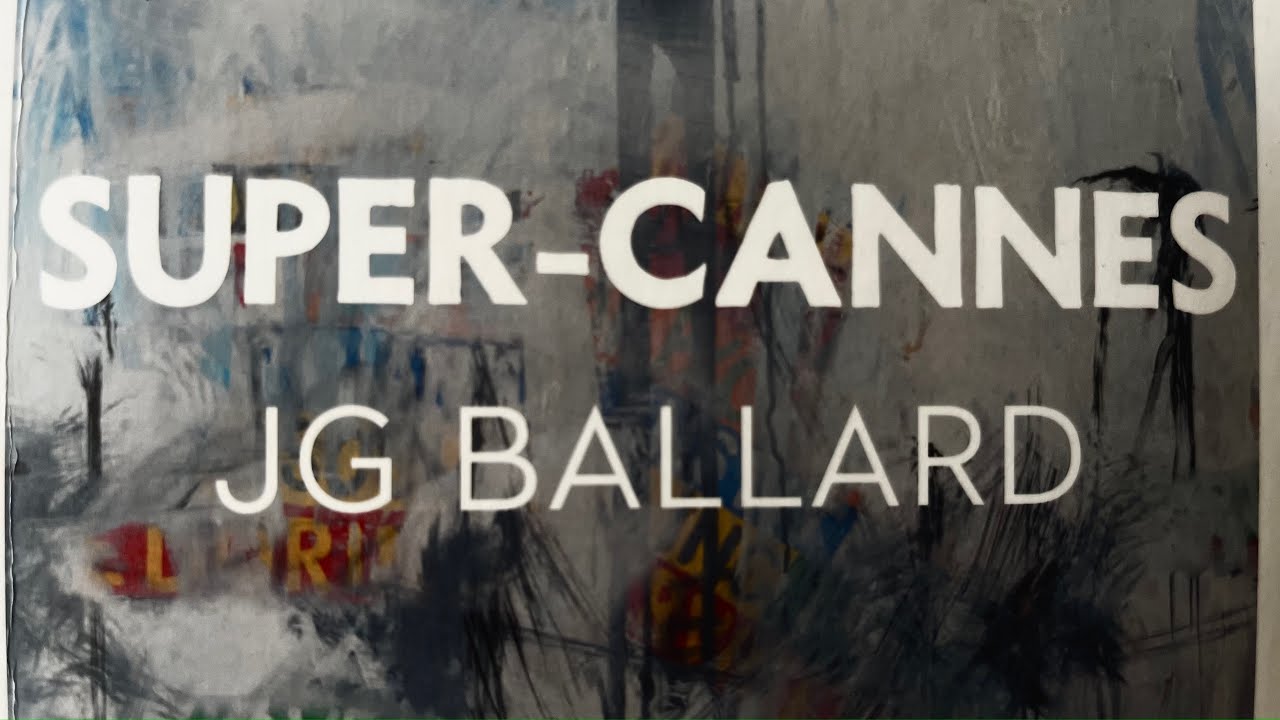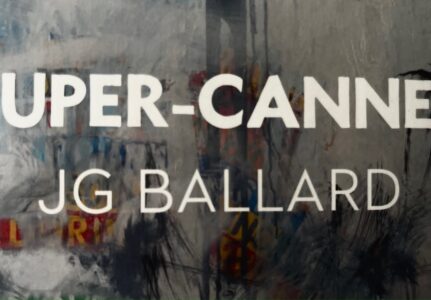Discover the Intriguing World of “Supercannes”
J.G. Ballard’s “Supercannes” stands as a compelling testament to the author’s genius. This novel, first published in 2000, takes readers on a mesmerizing journey through the dystopian landscape of a high-tech corporate utopia. With its intricate plot, memorable characters, and thought-provoking themes, “Supercannes” has left an indelible mark on the world of literature. In this article, we will explore the plot, key characters, themes, and the cultural impact of this extraordinary novel, as well as offer insights into Ballard’s inspiration, reviews, similar books, and other works by the same author.
Plot Unraveled
“Supercannes” unfolds in the near-future, set against the backdrop of an ultra-modern business park on the French Riviera, aptly named “Eden-Olympia.” This high-tech, self-contained corporate paradise is designed to cater to the needs of the global elite. The novel’s protagonist, Dr. Paul Sinclair, is a neurosurgeon who moves to Eden-Olympia with his wife, Jane, to join a prestigious medical clinic.
As Sinclair becomes acclimated to his new surroundings, he stumbles upon a series of mysterious events. Bizarre occurrences, including unexplained deaths, corporate conspiracies, and a strange psychological malaise affecting the residents, soon grip the utopian enclave. Ballard masterfully weaves together elements of science fiction and psychological thriller as Sinclair becomes embroiled in uncovering the dark secrets hidden beneath the glossy surface of Eden-Olympia.

The novel’s plot is rife with tension, intrigue, and a sense of impending doom. Ballard’s narrative skillfully peels away the layers of this seemingly perfect world to reveal the disconcerting truth lurking beneath.
Key Characters
Dr. Paul Sinclair
Dr. Paul Sinclair serves as the novel’s central character. As a neurosurgeon, he initially appears to be a rational and level-headed individual. However, as the story progresses, Sinclair undergoes a transformation, becoming increasingly obsessed with unraveling the mysteries of Eden-Olympia. His character serves as a window through which readers explore the eerie depths of the corporate utopia.
Jane Sinclair
Jane Sinclair, Paul’s wife, provides a contrast to her husband’s growing obsession. She grapples with her own experiences and emotions within Eden-Olympia, adding complexity to the story. Her character serves as a foil to Paul’s relentless pursuit of the truth.
Richard Wilder
Richard Wilder, a documentary filmmaker, is another crucial character in “Supercannes.” He arrives at Eden-Olympia with the intention of exposing its dark underbelly. Wilder’s character embodies rebellion against the sterile conformity of the corporate world, injecting an element of chaos and subversion into the narrative.
Key Themes
Dehumanization in the Modern World
Ballard explores the theme of dehumanization in “Supercannes” by depicting a society where technological advancement and corporate control have eroded individuality and emotional connections. Residents of Eden-Olympia lead highly regimented lives, devoid of genuine human interaction, mirroring concerns about the dehumanizing effects of modern life.
Corporate Power and Control
The novel delves into the unchecked power of corporations and their ability to shape the lives of individuals and entire communities. Eden-Olympia serves as a microcosm of corporate dominance, where the pursuit of profit takes precedence over ethical concerns and human well-being.
The Dark Side of Utopia
“Supercannes” challenges the idea of utopia by portraying Eden-Olympia as a facade concealing disturbing secrets. This theme invites readers to question the cost of perfection and whether utopian ideals can ever truly be achieved without sacrificing fundamental human values.
Technology and Alienation
Ballard underscores the alienating effects of technology on human relationships. In Eden-Olympia, advanced technology and surveillance intensify the isolation of its residents, highlighting the paradoxical impact of innovation on human connection.
What Inspired the Book
J.G. Ballard’s fascination with the intersection of technology, psychology, and society deeply influenced “Supercannes.” The author drew inspiration from his own experiences living in affluent communities on the French Riviera and observing the detached, homogeneous nature of such environments. Additionally, Ballard’s interest in the works of psychoanalyst Wilfred Bion and his exploration of group dynamics and psychopathology played a pivotal role in shaping the novel’s psychological aspects.
The author’s penchant for dissecting the human psyche and society’s underbelly is a recurring theme in his works, and “Supercannes” is a prime example of his ability to fuse these elements into a gripping narrative.
Reviews and Cultural Impact
“Supercannes” garnered both critical acclaim and controversy upon its release. Critics hailed Ballard’s ability to create a vivid and unsettling portrayal of a future society, praising his exploration of psychological and existential themes.
The novel’s cultural impact has been substantial, sparking discussions on topics such as the dehumanizing effects of technology, corporate power, and the fragility of utopian ideals. It continues to be a subject of academic analysis and remains a must-read for those interested in dystopian literature.
Similar Books Worth Exploring
If you found “Supercannes” intriguing, you may also enjoy the following novels that share thematic and stylistic elements:
1. “Neuromancer” by William Gibson
William Gibson’s cyberpunk classic explores the intersection of technology and humanity in a future where hackers navigate a virtual landscape. It’s a gripping tale of corporate intrigue and digital rebellion.
2. “Brave New World” by Aldous Huxley
Aldous Huxley’s seminal work envisions a society where technological advancements have led to a superficially perfect world, but at the cost of individuality and free will. It’s a thought-provoking exploration of utopia gone awry.
3. “The Circle” by Dave Eggers
Dave Eggers’ modern dystopian novel delves into the consequences of a powerful tech corporation’s influence on society. It’s a cautionary tale about surveillance, privacy, and the price of connectivity.
Other Notable Works by J.G. Ballard
J.G. Ballard’s literary legacy extends beyond “Supercannes.” Here are a few of his other notable works:
1. “Crash” (1973)
This controversial novel explores the eroticism of car crashes and the intersection of technology, sexuality, and death.
2. “Empire of the Sun” (1984)
A departure from his usual dystopian themes, this autobiographical novel draws from Ballard’s own experiences as a child in a Japanese internment camp during World War II.
3. “The Drowned World” (1962)
Set in a post-apocalyptic future where the polar ice caps have melted, this novel examines the psychological effects of environmental catastrophe.
Supercannes – Intriguing, Provocative, Timeless
“Supercannes” continues to captivate readers with its exploration of a future that uncomfortably mirrors aspects of our own world. Ballard’s ability to blend psychological insight with visionary storytelling is on full display, making it a timeless and thought-provoking work. Dive into the pages of this literary masterpiece and embark on a journey through the unsettling beauty of Eden-Olympia.
- J.G. Ballard’s Official Website
- Explore the official website dedicated to J.G. Ballard’s life and works. This resource provides insights into the author’s background, bibliography, and a wealth of information about his literary contributions.
- The Guardian’s Review of “Supercannes”
- Read The Guardian’s review of “Supercannes,” offering a critical perspective on the novel’s themes, characters, and impact.
- Dystopian Novels That Will Make You Question the Future
- Explore a curated list of dystopian novels, including “Supercannes,” that challenge the status quo and delve into the darker aspects of society and technology.


